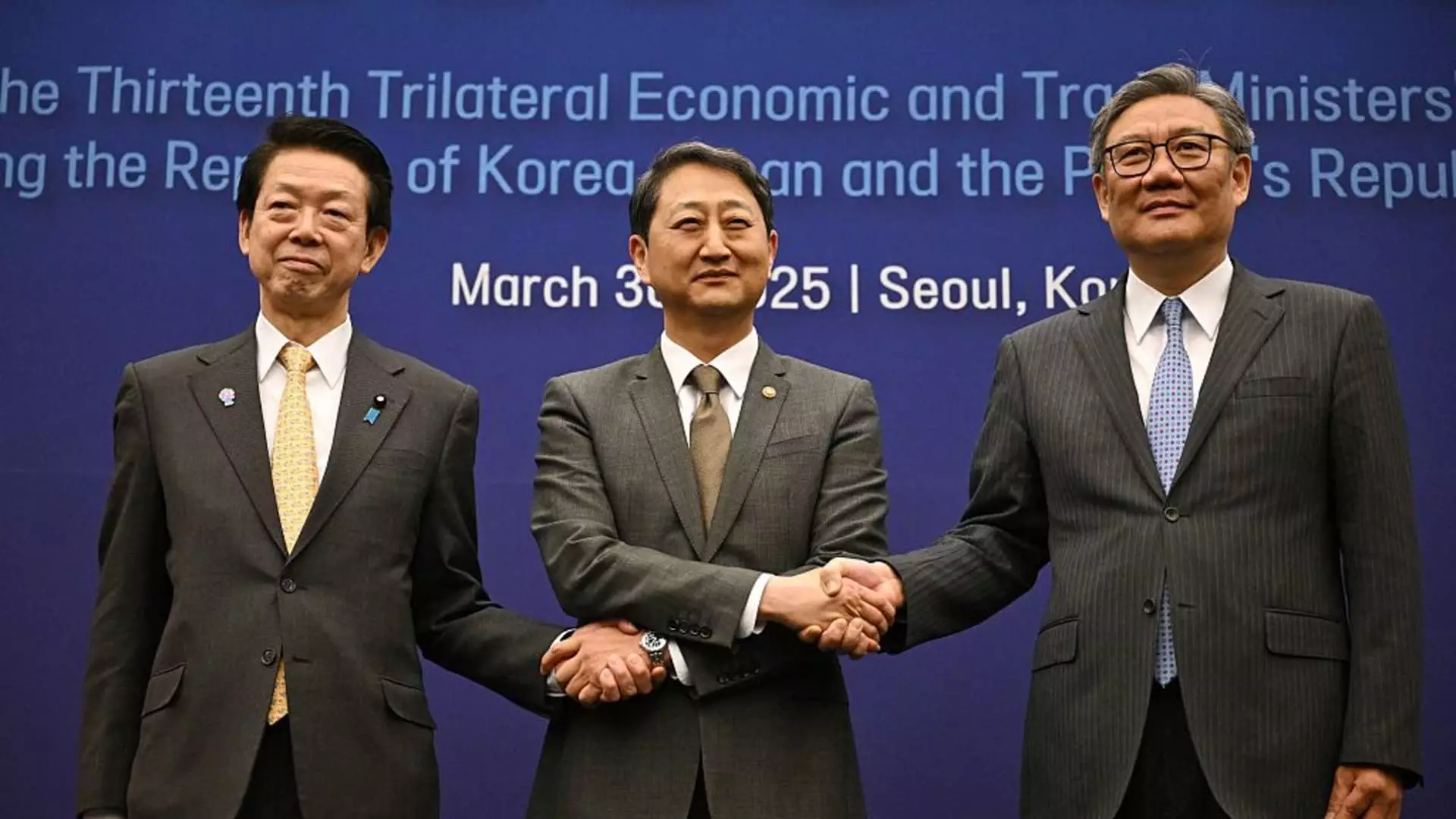In a world where economic alliances often shift as precariously as political ones, the recent dialogue between South Korea, China, and Japan is a notable beacon of hope amidst chaos. The three East Asian nations convened their first economic discussions in five years, a crucial step toward rekindling their trade relationships as they brace themselves against the might of U.S. tariffs imposed by President Donald Trump. It’s a moment worth acknowledging, not only for its potential economic ramifications but for demonstrating the resilience of diplomacy in the face of economic isolationism.
High Stakes for Regional Powers
These three countries are not just regional titans; they are vital players in global economic dynamics. Their collective move toward a free trade agreement signifies a proactive approach to countering the adverse effects of tariffs that threaten not only their individual economies but the fabric of international trade itself. South Korean Trade Minister Ahn Duk-geun’s assertion that they must reinforce the implementation of the Regional Comprehensive Economic Partnership (RCEP) underscores the urgency of this dialogue. The RCEP is a significant trade agreement that seeks to lower trade barriers across the Asia-Pacific and represents a critical counterweight to unilateral trade actions by the U.S.
What stands out in these discussions is the recognition that trade barriers not only stifle growth but also exacerbate existing geopolitical tensions. The historical backdrop of territorial disputes and environmental concerns, like Japan’s recent decision to release wastewater from the Fukushima plant, serves as a reminder that while economic collaboration is essential, underlying animosities can threaten progress.
Trump’s Tariffs: A Catalyst for Change?
It might be tempting to view Trump’s tariffs as simply a tool for economic protectionism, but they have inadvertently catalyzed a reconsideration of traditional relationships among major trading countries. As the U.S. pursues its isolationist policies under the guise of “liberation,” South Korea, China, and Japan seem determined to forge a path toward collaborative economic resilience. The stark reality is that such tariffs could significantly impact companies reliant on exports, particularly in the auto industry, where Asian manufacturers have long dominated the U.S. market.
For South Korea, which stands as the world’s second-largest exporter of vehicles to the U.S., and Japan, whose automotive industry shares similar stakes, the urgency could not be clearer. The ministers’ commitment to advance trilateral free trade discussions can be seen not only as a necessity but as a strategic maneuver to shield their economies from unpredictable U.S. policies.
The Broader Implications of Trilateral Engagement
This angling towards tighter economic ties among South Korea, China, and Japan can be viewed through a progressive lens. It reveals a proactive stance against isolationism that is consistent with center-left liberal values — one that nurtures cooperative international relationships as a bulwark against economic nationalism. The impending economic challenges induced by external tariffs should not lead to a retreat into nationalism; instead, they should foster collaboration that prioritizes mutual growth and the benefits of shared prosperity.
The upcoming ministerial meeting set to take place in Japan signifies a commitment to not just dialogue but actionable plans that could redefine trade norms in Asia. As Trump continues to reshape global trade dynamics, the ability of these nations to stand steadfastly together could usher in a new era of regional cooperation that enhances their economies while potentially setting a precedent for others grappling with similar challenges. It’s an exciting time for international relations, and the decisions made here could ripple across global markets.

